It’s a long way from a DC Thomson paper round in Dundee’s Menzieshill to a command post in eastern Europe.
But for Captain Luke Heppenstall, the journey from a chaotic childhood in Dundee to commissioned officer in the British Army has been more than geographic.
It’s a testament to the resilience of a young boy who grew up shouldering adult burdens, and who now devotes his career to lifting some of that same weight from the shoulders of others.
At 26, Luke is articulate, reflective, and quietly proud of where he’s come from.
His voice carries the soft lilt of a Scot tempered by time, education, and the clipped formality of military life.
He speaks thoughtfully, often pausing to give credit where it’s due.
And while his rank suggests authority, it’s empathy that defines his leadership style.
“Growing up, I always thought Dundee was my future – and I was content with that,” he says.
“But I didn’t realise then what I could become. The Army showed me that. It gave me a structure I didn’t know I needed.”
A childhood in the margins
Born in 1999 at Ninewells Hospital, Luke spent his early years in Denhead of Gray, on the edge of Dundee.
The son of a Yorkshire-born ex-soldier and a Belgian mother, his beginnings were humble – though not without love.
He was one of the first IVF babies in Tayside. “A £2,000 baby,” he says with a smile.
But behind the humour is a more serious story.
When he was just six, his parents divorced. What followed was a turbulent few years defined by domestic instability and the kind of adult responsibility no child should bear.
“I became a carer before I even knew what that word meant,” he says.
His mother’s partner became seriously ill following major heart surgery and his mother was diagnosed with clinical depression.
At the same time, his father – then living separately in Menzieshill – was fighting cancer.
Young Luke found himself managing medications, attending hospital visits, and navigating abuse at home.
“I was only eight, but I was doing night-time care for my dad and helping my mum’s partner during the day,” he recalls.
“It was a lot. But at the time, I didn’t know anything else.”
A lifeline at the right time
The turning point came when a school counsellor referred him to the Young Carers Project (now Dundee Carers Centre). That intervention gave him something rare: time to be a child.
“They gave me respite. Trips to M&Ds, visits to the Isle of Mull – stuff that felt like holidays at the time. But in hindsight, it was more than that. It was breathing room.”
That brief taste of freedom – and the kindness of youth workers who believed in him – sparked something.
Though he struggled in school and became introverted, his experiences forged a quiet strength.
By 14, he had moved in permanently with his father, who by then was cancer-free.
He took on multiple jobs: paper rounds, catalogue delivery, shifts at takeaway joints and call centres. It was a life of hustle.
“I wasn’t the perfect kid,” he admits.
“But I wouldn’t change any of it. I learned work ethic. I learned resilience. I learned to look after myself – and others.”
Finding purpose in uniform
Flirting with drugs and alcohol, Luke scraped through Dundee University with a business management degree.
Burned out by academia and disillusioned with student life, he considered dropping out completely.
But one weekend in a hotel room in Aberdeen he had what he calls a “moment of clarity.”
“I thought – what now? And then, like a cliché, I thought: the Army. Everyone does that when they’re lost, right?”
But unlike many, Luke didn’t just join. He went all in.
He started as a private in the 32 Signal Regiment, based in Douglas, Dundee.
But his ambition – and more importantly, his desire to make a difference – quickly pushed him toward officer training.
With encouragement from his brother, a former officer, he applied to Sandhurst.
“I thought it was full of people from Eton. I couldn’t have been more wrong. It was full of people who wanted to lead. Who wanted to help. Just like me.”
He passed the gruelling Army Officer Selection Board and was commissioned into the Educational and Training Services (ETS) in 2021.
From there, he began shaping training programmes, mentoring recruits, and – crucially – sharing his own life story to connect with soldiers from disadvantaged backgrounds.
“I see parts of myself in so many of the people I work with. That’s the reason I commissioned – not for rank or pay, but to help others avoid some of the same mistakes I made.”
From struggle to strength
Today, Luke is based in the Midlands, working as a learning and development advisor.
On deployment in Romania, near the Ukrainian border, in February he helped lead the media operations for Exercise Steadfast Dart. This was a NATO operation, attended by The Courier, which aimed to validate the Allied Reaction Force’s rapid response capabilities.
For him, the stakes are real. Not just in terms of global security, but for the soldiers he supports – many of whom, like him, joined the Army for structure, opportunity, and a chance at something better.
“We do draw heavily from lower socio-economic backgrounds,” he acknowledges.
“And that’s not a bad thing. For a lot of people, the Army is a lifeline. It was for me.”
Despite the rank, despite the accolades, Luke remains grounded in the streets of Dundee.
He’s quick to defend his hometown, proud of its grit, and even prouder of the life it gave him – warts and all.
“People used to say I’d fly, that I’d leave Dundee and do something big,” he reflects.
“But I didn’t believe them. I thought I’d always stay in the schemes, live that life. I didn’t know there was more.”
Luke urges young people to ask for help
He’s now married and settled, with two miniature dachshunds and a well-thumbed career spreadsheet colour-coded for future ambitions. Luke is a long way from the boy who once juggled hospital visits with homework. But he hasn’t forgotten him.
Asked what he’d say to his seven-year-old self, he pauses. Then, says quietly: “Keep smiling.
“It’s not about ‘manning up’. It’s about being comfortable being uncomfortable. Knowing when to ask for help. That’s what I try to teach now.”
From the schemes of Menzieshill to NATO command posts, Captain Luke Heppenstall’s journey is a reminder of what’s possible when someone dares to believe, even if only for a moment, that life can be more.
And for every young person in Dundee who thinks they can’t – he’s living proof that they can.
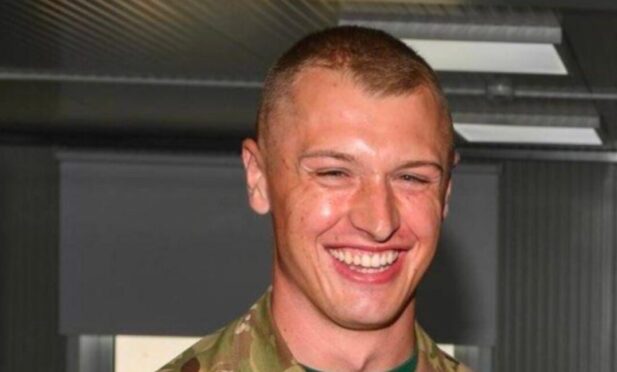
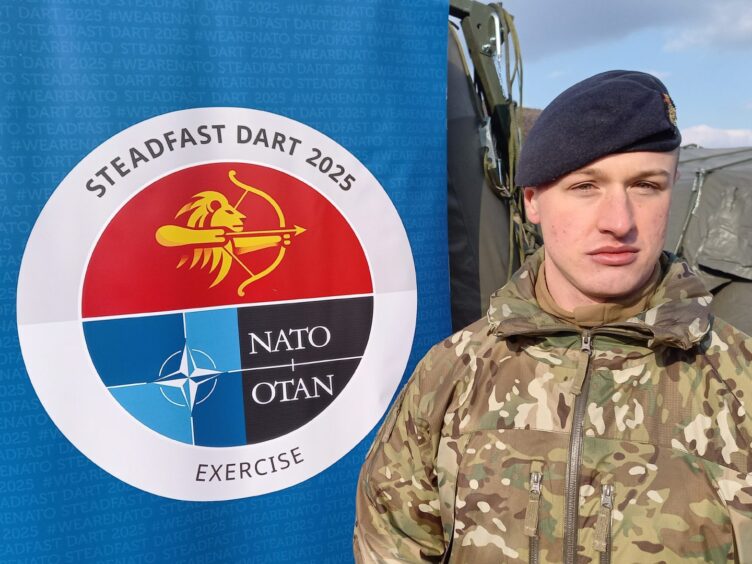
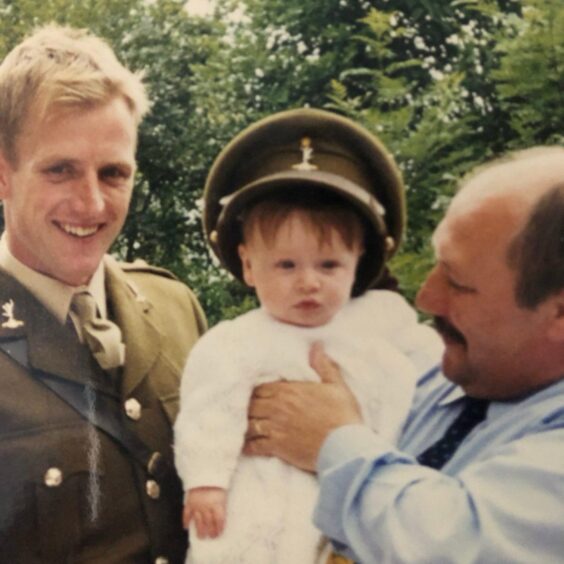
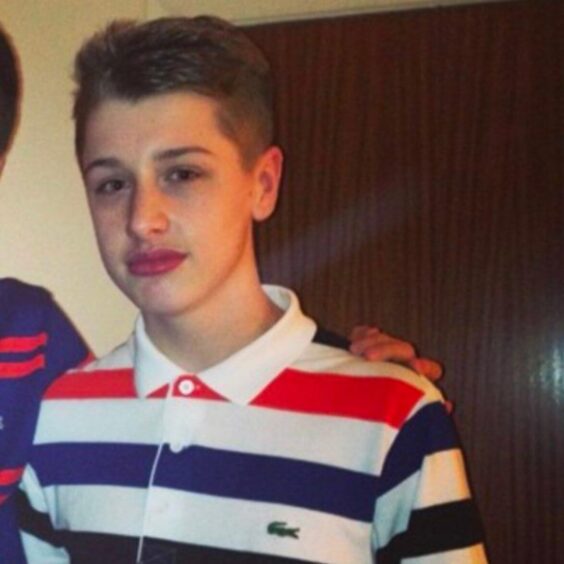
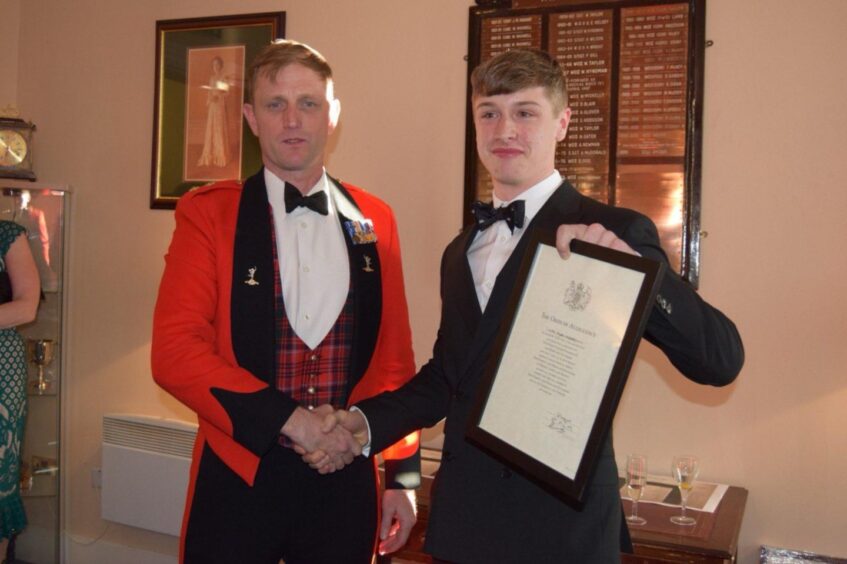
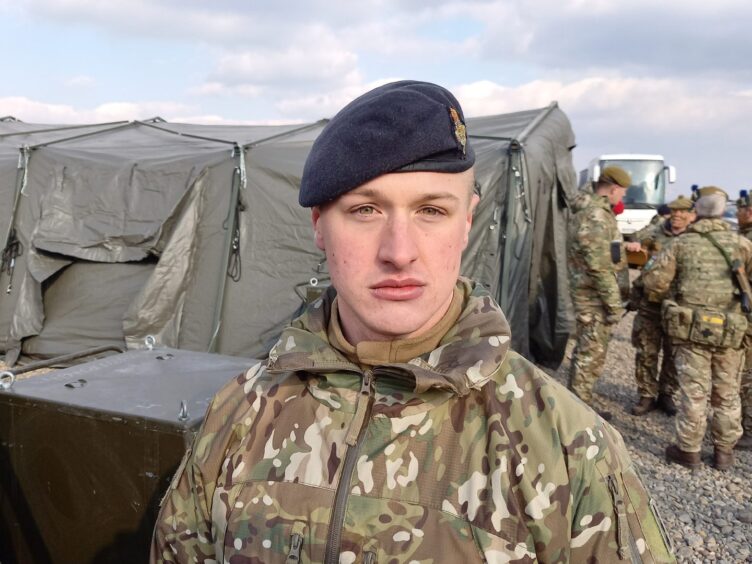
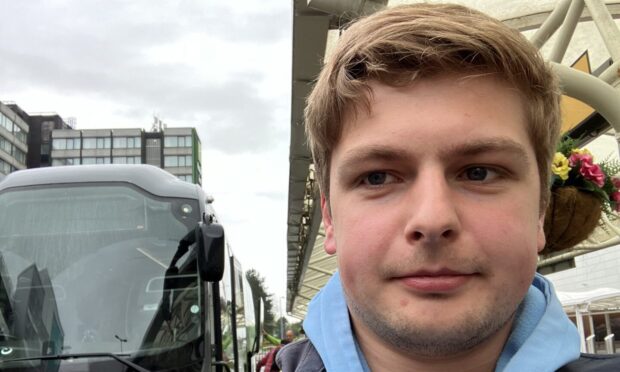
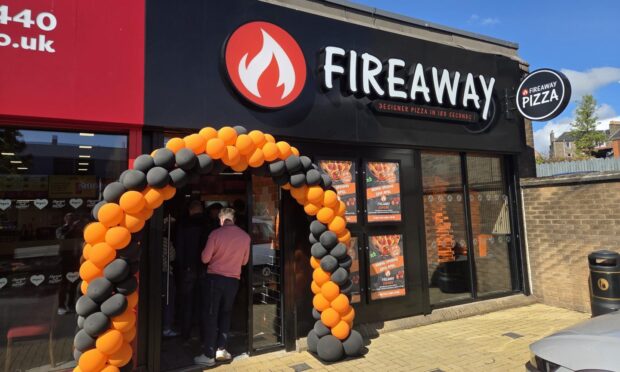

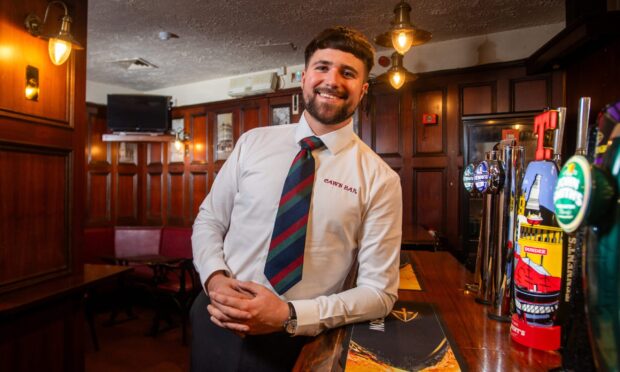
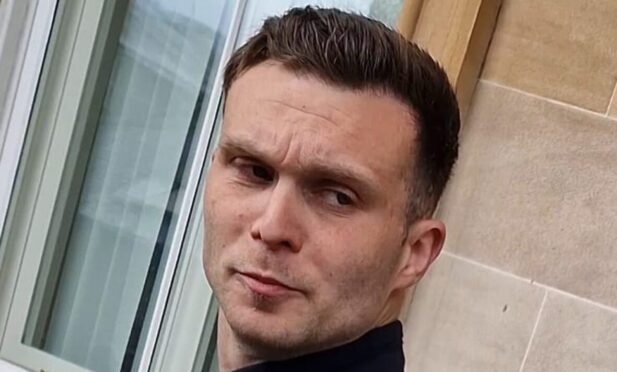
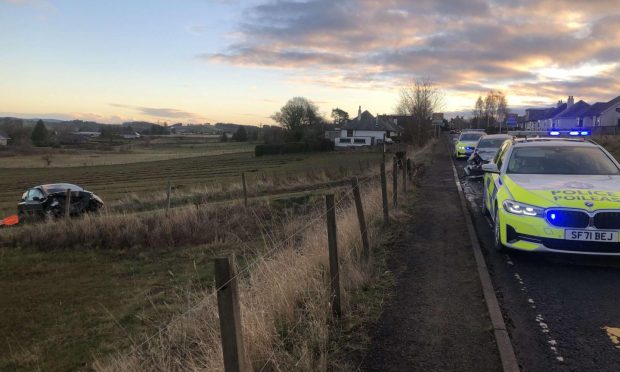
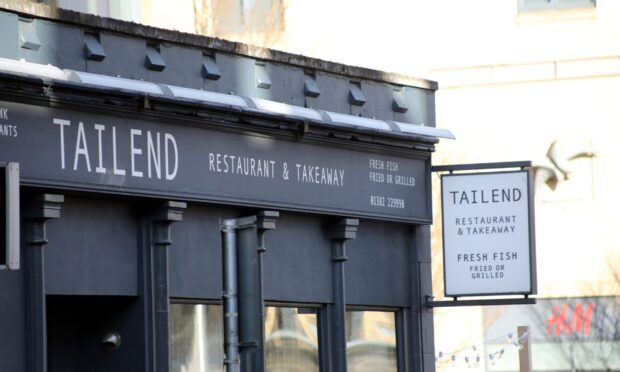
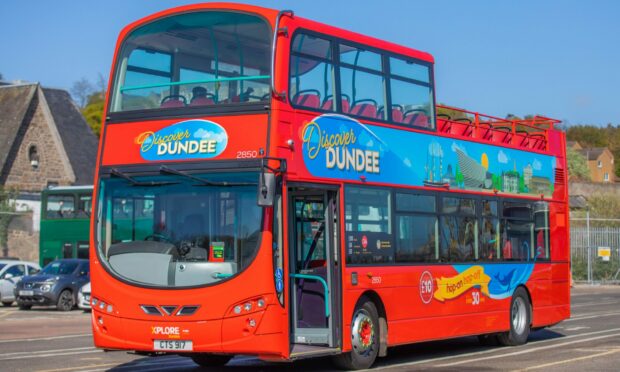
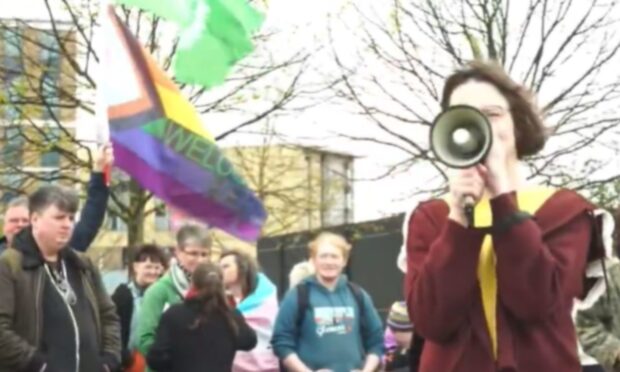
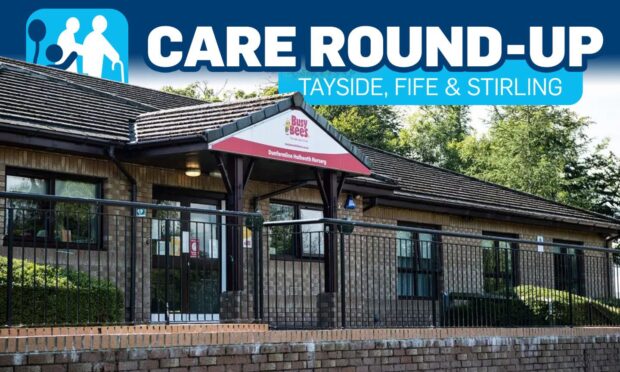
Conversation